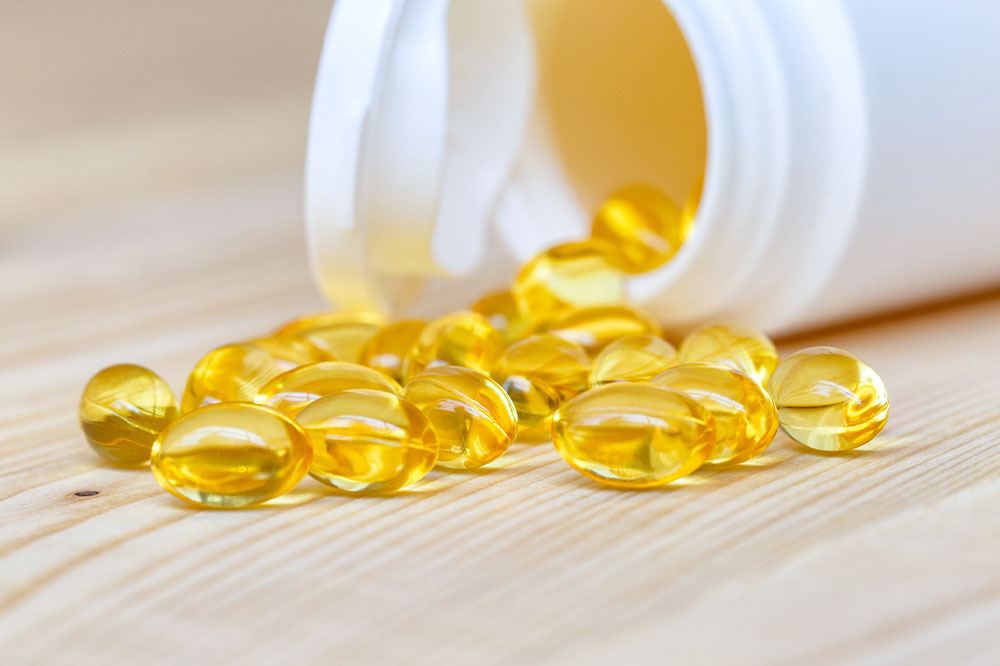Comprehensive Guide to Vitamins and Dietary Supplements for Optimal Health
This detailed guide explores the importance of vitamins, their sources, and supplementation tips. Learn how to balance your diet with the right nutrients to maintain optimal health, prevent deficiencies, and make informed choices about dietary supplements. Perfect for those seeking comprehensive health insights.

Comprehensive Guide to Vitamins and Dietary Supplements for Optimal Health
Vitamins are essential organic compounds that our bodies require to maintain various physiological functions. These nutrients are primarily obtained through a diverse and balanced diet, including fruits, vegetables, grains, dairy, and meats. However, in certain circumstances, such as specific health conditions, age-related changes, pregnancy, or lifestyle factors, individuals may struggle to meet their nutritional needs through diet alone. In such cases, dietary supplements become a valuable addition to support overall health and prevent deficiency-related health issues. This comprehensive article explores key insights into vitamins, their roles, sources, deficiency symptoms, and guidelines to help you make informed choices about supplementation.
Understanding Vitamins and Their Significance
Vitamins are a group of 13 essential nutrients, each playing specific roles in maintaining health. These are classified into fat-soluble (A, D, E, and K) and water-soluble (B-complex and C) vitamins. While they are naturally found in various foods, many people face challenges in obtaining adequate quantities daily. Here's a detailed overview of the vital vitamins, their benefits, sources, deficiency symptoms, and recommended daily intake:
Vitamin A (Retinol)
Vital for maintaining healthy vision, skin, and immune function, Vitamin A is a fat-soluble vitamin predominantly found in orange and green vegetables such as carrots, pumpkins, sweet potatoes, and leafy greens. Dairy products and eggs are also good sources. Adequate Vitamin A levels are essential for preventing night blindness and supporting cellular growth. Deficiency can lead to vision impairment, dry skin, and a weakened immune system. The recommended daily intake for adult men is 900 mcg RAE, and for women, it is 700 mcg RAE.
Vitamin B1 (Thiamine)
As a water-soluble vitamin, Thiamine is crucial for converting carbohydrates into energy and supporting nerve function. Found richly in whole grains, pork, oranges, and legumes, it’s vital for metabolic health. A deficiency may result in beriberi, characterized by muscle weakness, nerve damage, and cardiovascular problems. The average intake recommendation is 1.2 mg for men and 1.1 mg for women.
Vitamin B2 (Riboflavin)
This water-soluble vitamin plays a key role in energy production and cellular function. Food sources include dairy, eggs, lean meats, green vegetables like spinach, and bananas. Riboflavin deficiency can cause inflammation of the lips, mouth ulcers, and skin fissures. The daily recommended intake is approximately 1.3 mg for men and 1.1 mg for women.
Vitamin B3 (Niacin)
Supporting healthy skin and aiding in the breakdown of fats, proteins, and carbohydrates, Niacin is found in poultry, fish, nuts, lentils, and whole grains. Deficiency, though rare in developed countries, can lead to Pellagra, symptoms of which include dermatitis, diarrhea, and dementia. The recommended dietary allowance (RDA) is about 16 mg for men and 14 mg for women.
Vitamin B5 (Pantothenic Acid)
Important for energy metabolism and hormone synthesis, Pantothenic Acid is abundant in whole grains, eggs, avocados, and broccoli. A deficiency may cause fatigue, numbness, and gastrointestinal symptoms. The daily AI is around 5 mg for adults.
Vitamin B6 (Pyridoxine)
This vitamin is essential for amino acid metabolism, red blood cell production, and brain health. Found in bananas, chickpeas, fish, and potatoes. Inadequate intake can lead to anemia and neurological issues. The recommended daily intake is 1.3-1.7 mg for adults, varying by age and gender.
Vitamin B7 (Biotin)
Critical for keratin production, carbohydrate, and fat metabolism, Biotin is present in eggs, nuts, seeds, and vegetables like spinach. Deficiency is rare but can cause dermatitis, hair loss, and neurological symptoms. The AI is about 30 mcg daily.
Vitamin B9 (Folic Acid)
Known for its vital role in DNA synthesis and fetal development, Folic Acid is present in leafy greens, citrus fruits, beans, and fortified grains. Pregnant women need increased intake to prevent neural tube defects. The AI is 400 mcg per day.
Vitamin B12 (Cobalamin)
Essential for neurological function and red blood cell formation, Vitamin B12 is found in dairy, eggs, fortified cereals, and meats. Deficiency can cause anemia and nerve damage, which might lead to memory loss and weakness. The daily AI is 2.4 mcg.
Vitamin C (Ascorbic Acid)
A potent antioxidant, Vitamin C supports immune health, tissue repair, and iron absorption. Common sources are citrus fruits, berries, bell peppers, and tomatoes. Deficiency results in scurvy, characterized by bleeding gums and poor wound healing. The recommended daily intake is 75 mg for women and 90 mg for men.
Vitamin D (Ergocalciferol)
Crucial for calcium absorption and bone health, Vitamin D can be synthesized in the skin upon sun exposure or obtained from fortified foods and fatty fish. Deficiency leads to rickets in children and osteomalacia in adults. The daily AI is 15 mcg for most adults.
Vitamin E (Tocopherol)
Acting as an antioxidant, Vitamin E protects cells from oxidative stress. It’s found in nuts, seeds, and vegetable oils. Deficiency is rare but can lead to nerve and muscle damage. The daily AI is about 15 mg.
Vitamin K (Phylloquinone)
Essential for blood clotting and bone metabolism, it occurs naturally in leafy greens, broccoli, Brussels sprouts, and figs. A deficiency can impair clotting, leading to bleeding issues. The recommended daily intake is around 90 mcg for women and 120 mcg for men.
Differences Between Vitamins and Dietary Supplements
Understanding the distinction between vitamins and supplements is crucial for maintaining optimal health. Vitamins are naturally occurring organic compounds found in various foods and are necessary for normal metabolic processes. Supplements, on the other hand, are products manufactured to provide nutrients that might be lacking in the diet, either synthetically or naturally derived. They are designed to support energy levels, growth, immune function, and overall well-being.
While both are beneficial, excessive intake of either can pose health risks. Overconsumption of vitamin A, for instance, can cause toxicity, while excess vitamin D may lead to hypercalcemia. Conversely, deficiencies in these nutrients can result in serious health issues, including impaired vision, weakened immunity, anemia, or neurological problems.
Guidelines for Selecting the Right Dietary Supplements
Choosing a suitable supplement requires careful consideration and often consulting healthcare professionals. Here's a comprehensive guide to help you make safe and effective choices:
Seek advice from healthcare providers, especially if you have underlying health conditions or are pregnant.
Ensure the supplement aligns with your specific dietary needs and is compatible with your current treatments.
Read labels carefully to check for active ingredients, dosages, and potential allergens or interactions.
Verify that the product meets safety regulations and is approved by relevant health authorities.
Opt for products from reputable brands that follow Good Manufacturing Practices (GMP).
Remember, supplements are meant to complement a healthy diet, not replace it. Achieving a balanced intake of essential nutrients is key to maintaining long-term health and well-being.




